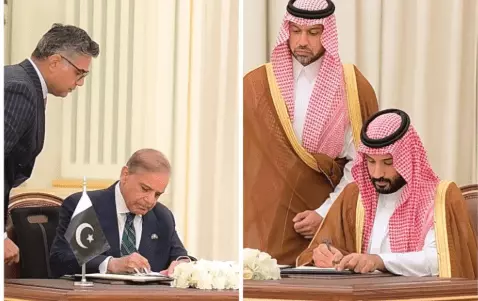
- Home
- India
- World
- Premium
- THE FEDERAL SPECIAL
- Analysis
- States
- Perspective
- Videos
- Sports
- Education
- Entertainment
- Elections
- Features
- Health
- Business
- Series
- In memoriam: Sheikh Mujibur Rahman
- Bishnoi's Men
- NEET TANGLE
- Economy Series
- Earth Day
- Kashmir’s Frozen Turbulence
- India@75
- The legend of Ramjanmabhoomi
- Liberalisation@30
- How to tame a dragon
- Celebrating biodiversity
- Farm Matters
- 50 days of solitude
- Bringing Migrants Home
- Budget 2020
- Jharkhand Votes
- The Federal Investigates
- The Federal Impact
- Vanishing Sand
- Gandhi @ 150
- Andhra Today
- Field report
- Operation Gulmarg
- Pandemic @1 Mn in India
- The Federal Year-End
- The Zero Year
- Science
- Brand studio
- Newsletter
- Elections 2024
- Events
- Home
- IndiaIndia
- World
- Analysis
- StatesStates
- PerspectivePerspective
- VideosVideos
- Sports
- Education
- Entertainment
- ElectionsElections
- Features
- Health
- BusinessBusiness
- Premium
- Loading...
Premium - Events

The intention to stand by each other militarily may look assertive, but in practical terms, this could amount to mere posturing
Pakistan appears to have spun a geopolitical googly, signing a mutual defence agreement with Saudi Arabia. Optics apart, whether the unexpected turn in their relationship has any sting is in doubt, for a variety of reasons.
The agreement caps an already existing deep strategic defence relationship between the two countries. The pact, signed on Thursday (September 18), states that “any aggression against either country shall be considered an aggression against both. It comes in the backdrop of two key events – one, Israel’s missile strike on Doha a few days ago, and the India-Pakistan conflict in May over the Pahalgam terror attack a month earlier.
Also read: Pakistan, Saudi Arabia sign pact for joint defence against any aggression; India responds
Posturing vs practicality
The intention to stand by each other militarily may look assertive, but in practical terms, this could amount to mere posturing.
Take two scenarios: If Israel strikes either of the two countries for any reason, can they retaliate in equal measure, going by the agreement? So far, Israel has been able to strike at will any nation in the Middle-East (or the West Asian) region without serious consequences. Iran retaliated and so did Yemen, but neither has been comparable to the intensity of the original strikes by Israel. Qatar has been unable to react beyond verbal condemnation.
The second scenario: There is another terror strike in India, which New Delhi blames on Pakistan. Assume that the Narendra Modi dispensation carries out its recently-enunciated threat of retaliation against Pakistan as part of Operation Sindoor 2.0. Will the Saudis join Pakistan under the newly-signed defence pact and attack India militarily?
Frustration with US
On either count, it is highly unlikely that Pakistan will move against Israel or Saudi Arabia against India. Over the last several decades, the Saudi-Pakistan relationship has been mutually beneficial, but neither has gone out on a limb to help the other. As analysts put it, neither government is likely to fall on the proverbial sword to save the other, and they are mostly invested in each other's political stability.
Also read: India-Saudi Arabia ties have acquired strategic depth, momentum: PM Modi
The agreement, if at all, seems to be an expression of deep frustration among Arab nations, most of whom are allies of the United States. Their frustration stems from the fact that the US, which is committed to their security, has let them down badly. Qatar, for instance, is closer to the US than most of its other allies in the region. It houses the largest US military base in the Gulf region, for instance.
Yet, there were reports that US President Donald Trump was complicit in Israel’s missile attack on Qatar’s capital, Doha. Trump has denied the allegation, but the fact of the matter is that he does not seem to have even reprimanded Israel, though he felt “very badly” about the attack and was “not thrilled” by it.
Why Gulf nations need Pakistan
For the Gulf nations, in particular Saudi Arabia, the US’s lack of reaction to Israel is a veritable wake-up call. One quick way to make up for the lack of firepower was to bring Pakistan into the equation. This, despite the fact that Islamabad has always steered clear of security issues in the Middle-East, never attempting to interfere in any of the various intra-regional hostilities.
Also read: What China-Bangladesh-Pakistan trilateral mechanism means for India
However, Pakistan’s nuclear capability has been traditionally viewed by Muslim-Arab nations in a favourable light – almost as if it were a counter to Israel’s nuclear prowess. Saudi officials have in the past been quoted as saying they did not worry about not having nuclear weapons, as all it required was to buy one from Pakistan, when necessary.
But Islamabad has always made it clear that its nuclear capability was for its own security in the South Asian region, as a deterrent to India with whom it shares decades of hostility.
What’s in the deal for Pakistan?
For Pakistan too, the pact with Riyadh is positive as it can flaunt its proximity with the Saudis, along with two other allies, China and Turkey.
The signing of the defence pact at this time is also an indication of the closeness of Pakistan’s Sharif brothers with the Saudi royal family. It is well known that former premier Nawaz Sharif, the brother of the current Prime Minister Shehbaz, shared a great personal rapport with the Saudi rulers.
What the agreement does is to cement the hold of Shehbaz Sharif within Pakistan’s multi-layered power structure. For Saudi Arabia is reportedly held in great respect in Pakistan for its position as leader of the Sunni Muslim community.
Also read: Trump’s attack on Iran, a ‘spectacular’ failure of US foreign policy
Also for Pakistan, the defence agreement brings in a feel-good element and exhibits a strategic depth in its relationship with Saudi Arabia.
Will defence pact come to Pak aid?
Viewed in the context of Saudi Arabia’s relationship with New Delhi, it is doubtful if the defence pact will come to Islamabad’s aid in the event of an India-Pakistan conflagration. The agreement could at most act as a deterrent for India in the event of a potential hostile situation with Islamabad.
Saudi Arabia has shared a good rapport with India for several decades, which received a shot in the arm during the tenure of former prime minister Manmohan Singh when the two countries in 2010 signed a strategic partnership. Reflecting their closeness, the Saudis also gradually reduced commenting critically on Kashmir in international forums. Just this April, Saudi-India ties got a further leg up during a visit by Indian Prime Minister Narendra Modi to Saudi capital Riyadh.
Also read: Trump, Netanyahu acting in tandem to subdue Iran?
Pak-China ties more worrisome
Ultimately it does not require a mutual defence pact for one country to come to the aid of another. Pakistan does not have such a defence treaty with China. But that did not stop Beijing from coming to Islamabad’s aid militarily (even if peripheral) during the recent Operation Sindoor.
The point to note here is that in past conflicts between Pakistan and India, China had never intervened directly but only provided Islamabad with diplomatic cover in an attempt to pressure New Delhi to stop fighting. This could be a far more serious worry for India than Pakistan’s defence pact with Saudi Arabia.


